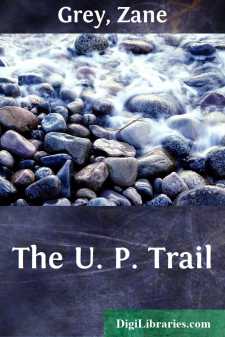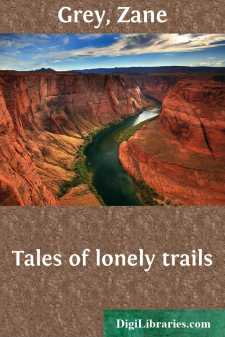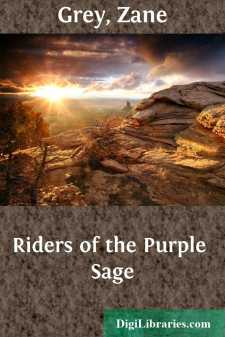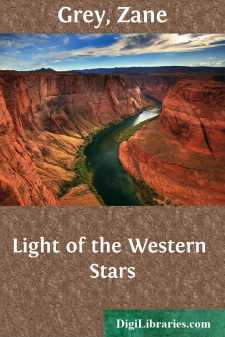Categories
- Antiques & Collectibles 13
- Architecture 36
- Art 48
- Bibles 22
- Biography & Autobiography 813
- Body, Mind & Spirit 142
- Business & Economics 28
- Children's Books 17
- Children's Fiction 14
- Computers 4
- Cooking 94
- Crafts & Hobbies 4
- Drama 346
- Education 46
- Family & Relationships 57
- Fiction 11829
- Games 19
- Gardening 17
- Health & Fitness 34
- History 1377
- House & Home 1
- Humor 147
- Juvenile Fiction 1873
- Juvenile Nonfiction 202
- Language Arts & Disciplines 88
- Law 16
- Literary Collections 686
- Literary Criticism 179
- Mathematics 13
- Medical 41
- Music 40
- Nature 179
- Non-Classifiable 1768
- Performing Arts 7
- Periodicals 1453
- Philosophy 64
- Photography 2
- Poetry 896
- Political Science 203
- Psychology 42
- Reference 154
- Religion 513
- Science 126
- Self-Help 84
- Social Science 81
- Sports & Recreation 34
- Study Aids 3
- Technology & Engineering 59
- Transportation 23
- Travel 463
- True Crime 29
The U. P. Trail
by: Zane Grey
Description:
Excerpt
1
In the early sixties a trail led from the broad Missouri, swirling yellow and turgid between its green-groved borders, for miles and miles out upon the grassy Nebraska plains, turning westward over the undulating prairie, with its swales and billows and long, winding lines of cottonwoods, to a slow, vast heave of rising ground—Wyoming—where the herds of buffalo grazed and the wolf was lord and the camp-fire of the trapper sent up its curling blue smoke from beside some lonely stream; on and on over the barren lands of eternal monotony, all so gray and wide and solemn and silent under the endless sky; on, ever on, up to the bleak, black hills and into the waterless gullies and through the rocky gorges where the deer browsed and the savage lurked; then slowly rising to the pass between the great bold peaks, and across the windy uplands into Utah, with its verdant valleys, green as emeralds, and its haze-filled canons and wonderful wind-worn cliffs and walls, and its pale salt lakes, veiled in the shadows of stark and lofty rocks, dim, lilac-colored, austere, and isolated; ever onward across Nevada, and ever westward, up from desert to mountain, up into California, where the white streams rushed and roared and the stately pines towered, and seen from craggy heights, deep down, the little blue lakes gleamed like gems; finally sloping to the great descent, where the mountain world ceased and where, out beyond the golden land, asleep and peaceful, stretched the illimitable Pacific, vague and grand beneath the setting sun.
Deep in the Wyoming hills lay a valley watered by a stream that ran down from Cheyenne Pass; a band of Sioux Indians had an encampment there. Viewed from the summit of a grassy ridge, the scene was colorful and idle and quiet, in keeping with the lonely, beautiful valley. Cottonwoods and willows showed a bright green; the course of the stream was marked in dark where the water ran, and light where the sand had bleached; brown and black dots scattered over the valley were in reality grazing horses; lodge-pole tents gleamed white in the sun, and tiny bits of red stood out against the white; lazy wreaths of blue smoke rose upward.
The Wyoming hills were split by many such valleys and many such bare, grassy ridges sloped up toward the mountains. Upon the side of one ridge, the highest, there stood a solitary mustang, haltered with a lasso. He was a ragged, shaggy, wild beast, and there was no saddle or bridle on him, nothing but the halter. He was not grazing, although the bleached white grass grew long and thick under his hoofs. He looked up the slope, in a direction indicated by his pointing ears, and watched a wavering movement of the long grass.
It was wild up on that ridge, bare of everything except grass, and the strange wavering had a nameless wildness in its motion. No stealthy animal accounted for that trembling—that forward undulating quiver. It wavered on to the summit of the ridge.
What a wide and wonderful prospect opened up to view from this lofty point!...












